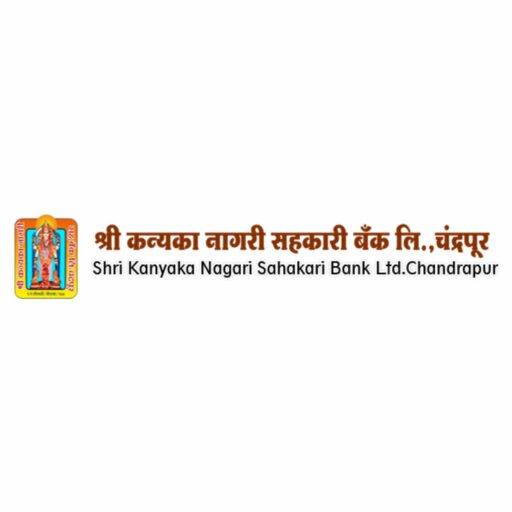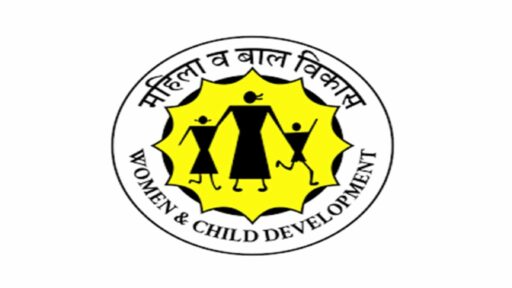Questionable Content
Chief Executive Officer Role at Kanyaka Nagari Sahakari Bank
Kanyaka Nagari Sahakari Bank Chandrapur opens doors for seasoned professionals to lead as Chief Executive Officer (CEO) in 2025. With a single vacancy available, this role demands strategic vision and compliance with RBI’s Fit and Proper criteria. Applicants must demonstrate expertise in banking governance, financial management, and stakeholder collaboration. The bank emphasizes offline submissions, requiring candidates to mail physical applications to its headquarters by 12 March 2025. Late entries or incomplete forms risk disqualification, underscoring the need for meticulous preparation. This recruitment aligns with the bank’s commitment to strengthening rural banking infrastructure in Maharashtra’s Chandrapur district.
Why This Role Matters for Early-Career Professionals
Picture this: a young professional, maybe in their early thirties, scrolling through job listings late at night. They stumble upon something unusual—a chance to lead a cooperative bank as its CEO. Not just any bank, but Kanyaka Nagari Sahakari Bank in Chandrapur. For someone starting out or even midway through their career, this could be the break they’ve been waiting for. It’s not your typical corporate gig where profit is king. Here, the focus is different—on people, communities, and real change.
Cooperative banks like Kanyaka Nagari work differently than big-city corporations. Imagine sitting around a table with farmers, shopkeepers, and local leaders, discussing how to make loans more accessible. That’s everyday life here. The role offers hands-on experience in rural credit systems—something you won’t find in shiny skyscraper offices. And let’s not forget about RBI rules. Navigating those regulations might sound boring, but trust me, it’s a skill that opens doors everywhere.
Now, here’s what makes this truly unique. The age limit? A wide range from 35 to 70 years. So whether you’re fresh off mid-career success or retired with decades of wisdom, you’re welcome. This mix creates a melting pot of ideas—older candidates mentoring younger ones, sharing lessons learned over years. Together, they tackle challenges like bringing digital tools to small towns. Think UPI payments for farmers or apps that simplify loan applications.
Experts say cooperative banking is the backbone of India’s financial inclusion efforts. According to NABARD reports, these institutions serve nearly 40% of rural credit needs. So stepping into this role doesn’t just boost a resume—it shapes lives. Someone taking this position isn’t climbing a ladder; they’re building bridges—for themselves, their team, and entire communities.
Decoding Eligibility: Academic and Professional Benchmarks
| Post | Educational Qualification | Age Criteria |
|---|---|---|
| Chief Executive Officer | CAIIB/DBF/DCBM with any degree OR CA/Cost Accountant OR Postgraduate degree | 35–70 years |
Navigating RBI’s Fit and Proper Criteria
The recruitment mandates adherence to RBI Circular 8/12.05.002/2019-2020 dated 31 December 2019. This framework evaluates candidates’ integrity, financial soundness, and absence of regulatory violations. Aspirants must submit No Objection Certificates (NOCs) from current employers if applicable. The bank reserves rights to verify antecedents through police verification or CIBIL reports, reflecting its zero-tolerance policy toward financial misconduct.
Strategic Application Process: Avoiding Common Pitfalls
Applications require handwritten forms available at Kanyaka Nagari Sahakari Bank branches or downloadable from www.kanyakabank.com. Candidates must attach self-attested copies of certificates, caste validity proofs (if reserved category), and two passport-sized photos. The application envelope should be superscribed “Application for CEO Post – 2025” and dispatched via registered post to:
Shri Kanyaka Nagari Sahakari Bank Ltd.,
Headquarter: 1st Floor, Raghuvanshi Complex,
Behind City High School, Bazar Ward,
Chandrapur-442402
Deadline Management for Success
Let’s get real for a moment. The deadline is March 12, 2025—mark it on your calendar, set reminders, do whatever it takes. But here’s the thing: if you’re applying from outside Maharashtra, don’t wait until the last minute. Postal delays happen all the time. Imagine your application getting stuck somewhere halfway, missing the deadline entirely. Experts suggest sending it via courier by March 5 to be safe.
Oh, and one more thing—the bank doesn’t play around with incomplete forms. No signature? Rejected. Missing documents? Rejected. They won’t even send you a warning. It’s harsh, sure, but think about it this way: they’re looking for detail-oriented leaders. If you can’t handle paperwork, how will you manage a bank? So double-check everything before hitting send.
Selection Dynamics: Beyond Paper Credentials
Shortlisted candidates undergo rigorous interviews assessing:
- Knowledge of cooperative banking laws
- Crisis management scenarios
- Digital payment system familiarity
- Stakeholder communication skills
The interview panel includes bank directors and independent banking experts. While academic qualifications form baseline criteria, practical problem-solving skills weigh heavily in final selections.
Leveraging Offline Applications for Visibility
Despite digital trends, Kanyaka Nagari’s offline process ensures equitable access for candidates without internet proficiency. Applicants can visit branch managers for form-filling assistance, though official helpdesks remain unavailable. This approach mirrors Maharashtra’s broader strategy to balance technological adoption with grassroots inclusivity.
Geographical Context: Banking in Chandrapur District
Chandrapur’s agrarian economy relies heavily on cooperative banks for crop loans and SME financing. The CEO will oversee 14 branches across the district, managing ₹850 crore in deposits. Key challenges include:
- NPA recovery in mining-affected regions
- Implementing PM Jan Dhan Yojana Phase III
- Expanding microfinance outreach to tribal belts
Successful candidates will collaborate with district collectors on financial literacy campaigns and GST compliance drives.
Future-Proofing Careers in Cooperative Banking
This recruitment signals cooperative banks’ evolving role in India’s financial landscape. CEOs must balance traditional member-centric approaches with modern fintech integrations like UPI-enabled kisan credit cards. The selected candidate will pioneer blockchain-based audit trails and AI-driven loan appraisal systems, positioning Kanyaka Nagari as a regional innovator.
Networking Beyond the Application
Aspirants should engage with Chandrapur’s banking associations and attend RBI workshops on cooperative governance. Building rapport with existing board members through formal channels can provide nuanced organizational insights. However, direct canvassing or lobbying violates recruitment guidelines.
Post-Application Strategies for Candidates
After submission, applicants should:
- Track delivery confirmation via India Post’s online portal
- Prepare for potential document verification rounds
- Monitor the bank’s website for interview schedules
While waiting, candidates can analyze Chandrapur’s economic surveys and NABARD reports to strengthen domain knowledge.
Comparative Analysis: Public vs. Cooperative Sector Roles
Unlike public sector banks, cooperative institutions offer faster decision-making and community-centric KPIs. CEOs here directly impact local economies but face constraints in technology budgets. Salary structures follow Maharashtra State Cooperative Societies Act guidelines, with performance-linked incentives.
Regulatory Landscape Shaping the Role
Key regulations impacting the CEO’s responsibilities include:
- Maharashtra Cooperative Societies Act 1960
- RBI Master Direction on Frauds (2016)
- FCRA compliance for CSR initiatives
Staying updated on amendments through RBI’s weekly bulletins is crucial for regulatory adherence.
Long-Term Career Trajectories
CEOs in cooperative banks often transition to roles in:
- NABARD advisory committees
- State Cooperative Election Commissions
- Rural development consultancies
This recruitment serves as a launchpad for influencing Maharashtra’s financial inclusion policies at the macro level.
Actionable Insights for Aspiring Bank Leaders
Candidates should:
- Study Kanyaka Nagari’s annual reports (available at branches)
- Practice mock interviews on cooperative banking case studies
- Subscribe to RBI’s monthly bulletin for policy updates

Those relocating to Chandrapur should research local housing markets and schooling options to demonstrate long-term commitment during interviews.



